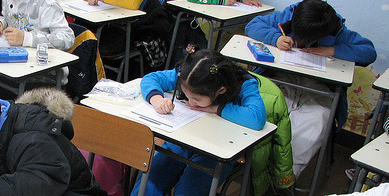Planning the Transition to Adulthood
There are many factors to take into account when planning a student transition to adulthood. This transition can be compounded when intellectual disabilities are involved. Here are some things to consider in making the transition to adulthood more student lead:
• Designed within an outcome-oriented process, which promotes movement from school to post-school activities, including post-secondary education, vocational training, integrated employment (included supported employment), continuing and adult education, adult services, independent living, or community participation.
• Based upon the individual student’s needs. The transition plan takes into account the student’s preferences and interests.
• Includes instruction, related services, community experiences, the development of employment and other post-school adult living objectives, and, when appropriate, acquisition of daily living skills and functional vocational evaluation

Other Things to Consider in the Transition…
School-to-Work
What help is available for learning disabled adults seeking jobs?
Self-Advocacy
Self-advocacy refers to:
An individual’s ability to effectively communicate, convey, negotiate or assert his or her own interests, desires, needs, and rights.
It involves making informed decisions and taking responsibility for those decisions.
- The importance of developing self- advocacy skills to access services in the classroom
- Study Skills are necessary for students to become self-advocates
Transition Skills
You are getting ready for some major changes in life.
- What are they and how will you get there?
- What do you need to do to be successful at what you do?
Patience
We all make mistakes.
Support Network
Friends and family to get you back on your feet can truly make a difference of conquering your goals.
Ways to make friends
- Develop hobbies
- Sports
- Any extracurricular clubs
- Jobs
- Church
- Volunteer work
Communication
In the workplace, there is a need to know for appropriate response, like:
- What is OK to say
- What is appropriate conversational distance
- What tone is correct for the situation
Good Behavior
- Maintaining attention
- Listening
- Taking turns
- Being polite
Related Articles to ‘Transition to Adulthood: How to Ease the Transition and Plan Ahead’
Self-Advocacy: Why It’s Part of the Transition
Intellectual Disability: Welcome to Adulthood




